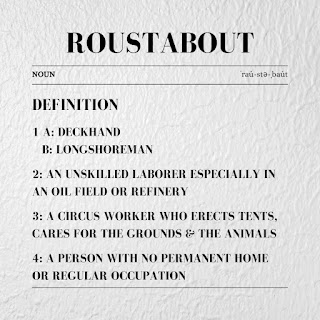Scripture Deuteronomy 6:4-5
Are you ready to dive “all in” to
our 2022 church and preaching theme? The theme is “All in”
Someone diving is a perfect
metaphor for being all in with Christ. Title slides
As you stand
there getting ready – you may be terrified of the jump, or the water below, but
you know, once you step or jump off the ledge – you are all in – there is no
going back.
You can’t be
mid-air and go,
I changed my mind, I want to go back to the diving board or
the cliff I just jumped from. Even before you hit the water, your
commitment is already
all in. That is a scary and beautiful thing. We
even sometimes call it what?
A leap of faith!
Then when you hit
the water there is a new understand to being all in – you can’t dive and just
go in half-way. Physics says your whole body is going to get wet and be
immersed in the water. You have now gone ALL IN.
(Example:
Mormon Baptism when the girls hand did not go in they had to rebaptize her).
So, what does
“All in” look like as far as a year for preaching? What will we hear – where
will the emphasis lie?
Unlike red
letter edition that was based solely on the words or Jesus, or HIStory that
always had to contain a story of God working through his people, this theme can
take us many places in many different ways: For instance---
1 All in can refer to how God was
"
All in". When you
think about God as a baby in a manger – God the Father was
all in. When
you think about Jesus taking 12 people to train so his church could be
established after he was gone – the Spirit was
all in. When you see
Jesus on the cross dying for our sins – Jesus was
all in. We can see
throughout scripture and throughout church history how God was
all in
for our sakes and the sake of his church.
2 All in can refer to a person coming
to faith - when you turn from the world to faith and Jesus, it cannot be in
part but must be with all of your heart, soul, (mind) and strength. Once you
leap – the water awaits – there is no turning back.
3 All in can refer to your commitment
to Christ’s church - no longer settle for just attending, but making the health
and growth of the church a priority in your life - being 'all in'. It means
your commitment to loving others as Christ loved you will show itself in real
tangible ways of service to others.
All in has examples
throughout the OT and NT.
David
was all in against Goliath. Peter was all in when he stepped onto the water.
The priests were all in when they stepped into the Jordan to cross on dry
ground. Jacob was all in when he wrestled with God. Moses was all in when he
went to Pharaoh, Stephen was all in when he stood up for Jesus, Paul was all in
- always! A centurion was all in when he trusted his servant could be healed
just by Jesus speaking a word.
There are
examples of Christians “
all in” throughout church history: Conrad
Grebel, John Huss, Polycarp, Martin Luther, Adoniram Judson, Mother Teresa, etc.
There
are many scriptures we can turn to that speak of being
all in, but our
undergirding text is the single most significant text to the Jewish people and
is called the SHEMA! To have any theme, it must be based on scripture, so today
we are going to take a close look at the SHEMA.
The Shema is prayed twice daily
(morning – rising, and evening when lying down) by Jews and (most of us are
familiar with the beginning) but the whole Shema prayer consists of 3 separate
texts all prayed at one time. They are
Deuteronomy 6:4-9
/ Deuteronomy 11:13-21 / Numbers15:37-41
Following the example of the scholar-martyr Rabbi Akiba (2nd century AD), the Shema has been
uttered by Jewish martyrs throughout the
ages as their final profession of faith in the one God of humankind and their
love for him. Pious Jews hope to die with the words of the Shema on their lips.
This text for Jews means they are all in – it should do no less
for us who follow Christ.
THE SHEMADeuteronomy 6:4-9
Hear, O Israel:
The Lord our God, the Lord is one. 5 Love the Lord
your God with all your heart and with all your soul and with all your strength.
6 These
commandments that I give you today are to be upon your hearts. 7 Impress them on
your children. Talk about them when you sit at home and when you walk along the
road, when you lie down and when you get up. 8 Tie them as
symbols on your hands and bind them on your foreheads. 9 Write them on the
doorframes of your houses and on your gates.
Deuteronomy 11:13-21
So if you faithfully obey the commands I am
giving you today — to love the Lord your God and to serve him with all your
heart and with all your soul — 14
then I will send rain on your land in its season, both autumn and spring rains,
so that you may gather in your grain, new wine and oil. 15 I will
provide grass in the fields for your cattle, and you will eat and be satisfied.
16 Be careful, or you will be enticed to turn away and worship
other gods and bow down to them. 17 Then the Lord's anger will
burn against you, and he will shut the heavens so that it will not rain and the
ground will yield no produce, and you will soon perish from the good land the
Lord is giving you. 18 Fix these words of mine in your hearts and
minds; tie them as symbols on your hands and bind them on your foreheads. 19
Teach them to your children, talking about them when you sit at home and when
you walk along the road, when you lie down and when you get up. 20
Write them on the doorframes of your houses and on your gates, 21
so that your days and the days of your children may be many in the land that
the Lord swore to give your forefathers, as many as the days that the heavens
are above the earth.
Numbers15:37-41
The Lord said to
Moses, 38 "Speak to the Israelites and say to them:
'Throughout the generations to come you are to make tassels on the corners of
your garments, with a blue cord on each tassel. 39 You will have
these tassels to look at and so you will remember all the commands of the Lord,
that you may obey them and not prostitute yourselves by going after the lusts
of your own hearts and eyes. 40 Then you will remember to obey
all my commands and will be consecrated to your God. 41 I am the Lord
your God, who brought you out of Egypt to be your God. I am the Lord your
God.'"
We will look at
just the beginning part of the SHEMA. Deuteronomy 6:4-5.
Being a prayer that everyone recognizes, the closest thing to that for
Christians, would be the Lord’s prayer which we can’t even agree on all the
wording (debts vs trespasses and do you include the extra-biblical part at the
end).
The Shema gets its name from the first Hebrew word of the prayer
in Deuteronomy 6:4 “Listen/Hear, Israel, the Lord is
our God, the Lord is one.” SHEMA in Hebrew is translated “Listen”
in English. But like so many words translated, our English word does not give
the full meaning of Shema. This VIDEO will say it better than I can. So “Hear,
Oh Ashland!”
Play Shema video
The Shema is attributed to Moses before the next generation of
Israel entered the Promised Land. Moses challenges them with his wisdom and
warning because he doesn’t want these Israelites to repeat their parents’
mistakes. Rather, he invites them to respond to God’s grace and mercy with love,
faithfulness, and obedience.
Translating the Shema
Bible geeks, you will find this
part really interesting. But be warned--it’s kind of complicated! From ancient
times, there has been much debate on how exactly to translate and interpret the
Shema, due to ambiguity in the grammar of the main sentences. There is no
present-tense verb equivalent to the English verb “is” in Ancient Hebrew. There
is a word for “was” (Heb. hayah) and “will be” (Heb. yihyeh),
but “is” doesn’t exist. Rather, two words are put next to each other and the
word “is” is inferred.
For
example: English: “The car is red.”
Ancient Hebrew: “The car red.”
Ancient
Israelites obviously had a concept of the verb “is,” they just didn’t use a
word to express it in their language. The problem in translating and
interpreting the Shema arises from the fact that it’s made of two back-to-back
sentences that lack the word “is.” In Hebrew, the prayer consists of four nouns
in a row.
Hebrew: YHWH ‘elohenu
YHWH ekhad English: Lord our god Lord one
Depending on where you place
the word “is,” you can end up with different sentences.
1. The Lord our God is one Lord.
2. The Lord is our God, the Lord
is one.
3. The Lord our God, the Lord is
one.
The meaning between these options isn’t drastically different, but
each one has a different emphasis. Is the point that the Lord God is one and
not many (#1 or 3), or is the emphasis on the fact that only the Lord is our
God (#2)? Does the Shema claim that Israel’s God is one being, or is it
highlighting that the Lord alone is Israel’s God and not any other?
This last meaning seems to fit the overall context
of Deuteronomy much better. In other words, the Shema isn’t trying to
make a philosophical statement about God’s essence or being (that God is
“one”). Rather, the Shema is a pledge of allegiance to the Lord God of Israel
that excludes allegiance to any other gods. Remember Isa 46:9 “Remember the
former things, those of long ago; I am God, and there is no other; I am God,
and there is none like me.” That is clearly stating that God is one but the
important here like in the Shema, it is calling for an allegiance to this one
God!
Polytheistic Threat
Moses clearly believes that loyalty, obedience, and love to their
one true God is the only way to life. One of the greatest threats to Israel’s
future was dividing their allegiance between many gods. And so, the Shema is a
daily reminder that “The Lord our God alone is our God.” The prayer goes on
from here to show the value of passing this conviction on to later generations
to spare them the tragic results of idolatry to other gods. (Like the B I B L E
song: “I stand alone on the Word of God” NO – it is: “I stand on the Word of
God alone”) Allegiance to the word of God only – The Shema – allegiance to YHWH
‘elohenu – the Lord our God!
“You shall teach them diligently to your children and shall
talk of them when you sit in your house, and when you walk by the way, and when
you lie down, and when you rise up.”
Shema Usage in the New Testament
The Shema became a twice-daily prayer within Judaism. It was so
widely practiced in the second-temple period, Jesus himself grew up praying it.
This prayer was formative for Jesus and he drew upon it in his teachings.
Mark 12:28-34
One of the teachers of the law came and heard them debating.
Noticing that Jesus had given them a good answer, he asked him, "Of all the commandments, which
is the most important?" "The most important one," answered Jesus, "is this: 'Hear, O Israel, the
Lord our God, the Lord is one. Love the
Lord your God with all your heart and with all your soul and with all your mind
and with all your strength.' The second
is this: 'Love your neighbor as yourself.' There is no commandment greater than
these." "Well said, teacher," the man replied. "You are right in saying that
God is one and there is no other but him. To love him with all your heart, with
all your understanding and with all your strength, and to love your neighbor as
yourself is more important than all burnt offerings and sacrifices." When Jesus saw that he
had answered wisely, he said to him, "You are not far from the
kingdom of God."
In other words, this teacher of the law understood the word of God
so well, particularly the SHEMA, even with Jesus adding the second greatest
commandment to it, that Jesus was saying, you are standing on the edge of the
cliff – you clearly see the water below, you are so close but not yet ALL IN.
You need to jump, by faith, into the Living Water who is Jesus!
Picnic with the pastor
(Like the B I B L E song: “I stand alone on
the Word of God” or it should be “I stand on the Word of God alone”)
The B I B L E, yes that’s the book for me, I
stand alone on the word of God, the B I B L E. Bible!
That is wrong, we don’t stand all alone on the
word of God, other people stand with us. When we say stand, we don’t mean to
literally stand on the bible – it means we believe what it says and live by
what it says. Like – “I stand on the fact that my moth loves me” It means you
know it is true. We know the bible is true so we say we stand on it. But we
don’t stand on it alone. Many stand with us.
How can we say what the person probably meant
when they wrote this song?
The B I B L E, yes that’s the book for me, I
stand on the word of God alone, the B I B L E. Bible!
That means we don’t listen to what the
world says, we don’t have any other writings that are equal to the bible. We
believe in (stand on) the word of God (the Bible) and nothing else. We stand on
the word of God alone.






















